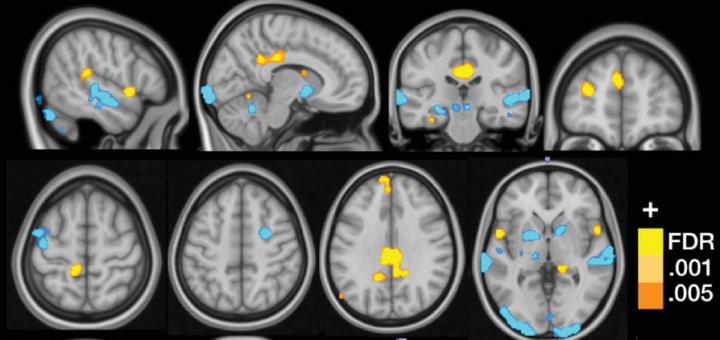Needless criticism for doctors treating Lyme disease
Lyme disease (LD), an illness that can be extremely difficult to diagnose and treat, is made even more challenging when physicians criticize one another about managing such complex cases. The authors of a recent report published in JAMA Internal Medicine took aim at doctors who diagnose and treat Lyme disease. [1]
Can we measure the brain’s exaggerated response to pain and sensory input?
A team of researchers in Colorado have demonstrated the effectiveness of utilizing neuroimaging-based tools to help validate pain symptoms and gauge treatment response in patients with fibromyalgia (FM). Such techniques have the potential to benefit Lyme disease patients by helping to determine the effectiveness of various therapies for each patient.
Brazil faces same problems with Lyme disease as seen in the USA
An article published in the Brazilian Journal of Microbiology entitled "Brazilian borreliosis with special emphasis on humans and horses" examines the growing number of cases in Brazil of Lyme disease, referred to, in that country, as the Lyme-like or Baggio-Yoshinari Syndrome (BYS).
Antibiotic treatment points to cause: Lyme disease
When diagnosing Lyme disease, doctors must typically rely on a wide range of signs and symptoms. Laboratory testing can be utilized but is frequently unreliable. Making a diagnosis based upon response to antibiotic treatment is unusual. However, LeWitt, from the University of Michigan, describes just such a case in a recent issue of Clinical Neuropharmacology. [1]
Seizures and altered mental status after a tick bite
In a recent issue of the British Medical Journal Case Report, researchers from George Washington University School of Medicine describe the case of a 66-year-old woman who presented to the hospital with lethargy, fever, chills, ataxia, a cough and slurred speech. The woman, who had been treated for presumed community-acquired pneumonia, was ultimately diagnosed with human monocytic ehrlichiosis (HME), one of the most life-threatening tick-borne illnesses in the country. [1]
Fatigue can be overlooked as a “sign” of Lyme disease
There are several objective signs of early Lyme disease, including Bell's palsy, synovitis of the knee, the presence of an erythema migrans (EM) rash, uveitis, bursitis of the hip and shoulders, and sacroilitis. However, severe fatigue has also been described as a sign of early Lyme disease (LD).
How can doctors determine if patients with systemic autoimmune joint disease following Lyme disease don’t have a persistent infection?
Doctors at Massachusetts General Hospital have described a series of 30 patients who developed systemic autoimmune joint disease following Lyme disease. "Fifteen had rheumatoid arthritis (RA), 13 had psoriatic arthritis (PsA), and 2 had peripheral spondyloarthropathy (SpA)," according to Arvikar and colleagues. [1]
Quality of Life for Lyme Disease patients in the Netherlands can be grim
Three trials sponsored by the National Institutes of Health (NIH) in the USA have demonstrated the poor Quality of Life (QOL) for patients diagnosed with Lyme disease. [1,2] A recently published clinical trial in the Netherlands entitled "Persistent Lyme Empiric Antibiotic Study Europe (PLEASE)" found the Quality of Life for Lyme disease patients in the Netherlands was equally as poor.
Steroid use can lead to long-term treatment failure for Lyme disease patients
Several studies have documented the consequences steroids pose to patients with Lyme disease. Most recently, researchers from Massachusetts Eye and Ear and Harvard Medical School published a retrospective study which described an "association between corticosteroid use in acute LDFP [Lyme disease-associated facial palsy] and worse long-term facial function outcomes." [1]
Women with chronic Lyme disease may suffer from a severe immune response triggered by the disease
Women with chronic manifestations of Lyme disease (LD) are often told they suffer from a variety of other illnesses including depression, rheumatoid arthritis, fibromyalgia and chronic fatigue syndrome or unexplained medical symptoms.












